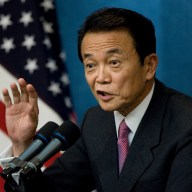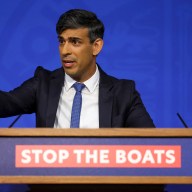Homeless people as WiFi hotspots?
Yes, that’s an idea pitched by a New York City-based ad agency BBH New York at the South by Southwest (SXSW) festival going on this week in Austin, Texas.
BBH outfitted four homeless men and women with a MiFi device, a mobile WiFi router and T-shirts reading “I am a 4G hotspot,” and asked them to wander around the SXSW conference supplying attendees with Internet.
But backlash against the idea hit almost immediately yesterday.
“What a shameful, hideous, patronising, dehumanising idea,” wrote Luke Scheybeler, a UK brand strategist, on Twitter.
“As if the homeless aren’t dehumanized enough, they are now being used as Wi-Fi hotspots at South by Southwest,” posted journalist Saleem Khan on Twitter.
And what’s to stop the homeless person from simply walking away?
“I don’t think they would blindly walk off,” said Tim Nolan, BBH’s creative director. Nolan said he, along with another
colleague, came up with the idea. “It’s an opportunity to run something. They’re, like managing a small business.”
As of now, there’s no set fee for those who avail themselves of the service. It’s “pay what you want,” but BBH suggests $2 for 15 minutes.
Dolan said one person even shelled out $100 for the novelty. The money goes directly to the homeless person and back to a local shelter in Austin, where they were vetted before being given the job.
Defending the idea
Nolan defend his idea from the mounting criticism.
“I think we’re a good ways away from sustainable WiFi in every town, even in New York City,” he told Metro yesterday. “Being exploitative of anyone was the last thing we intended.”
Nolan said he was using Austin as a litmus test, and if it worked, the plan could ideally spread to other cities in the U.S., including New York.
He pointed out the idea stemmed from the street newspaper concept, where homeless people create and sell their own newspaper. And he said he understands critics of the proposal, but called it “reactionary.”
“They were so happy people were approaching them,” he said of the homeless volunteers. “They became in demand.”
















